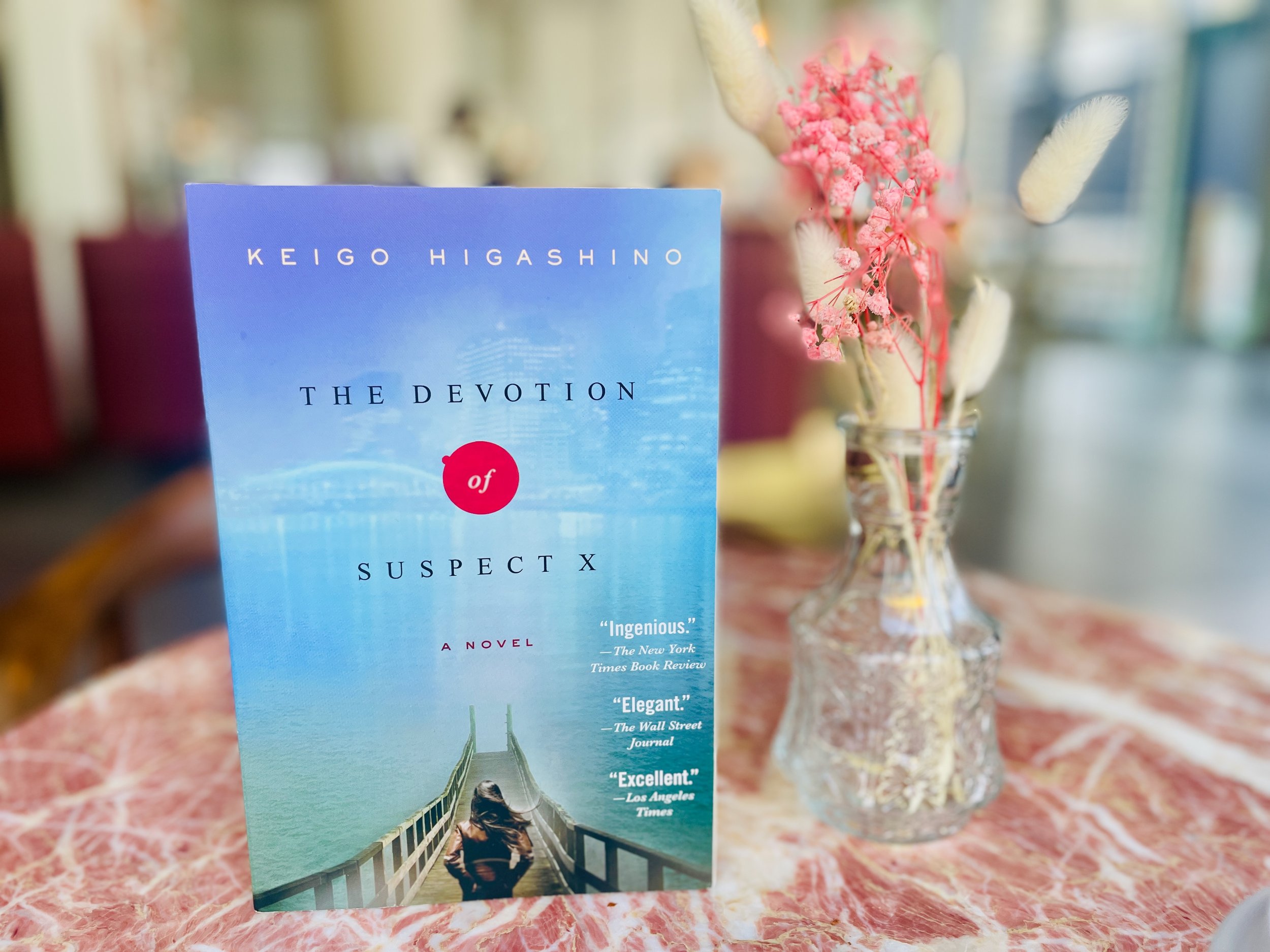Review: 3 stars
Since moving out to Oakville, I have been looking for a great book club to join. After digging around, I wasn’t able to find any group that really matched what I was looking for - acclaimed reads, literary discussion and serious book lovers. A book club based in Toronto ended up hitting the mark - and I read ‘The Devotion of Suspect X’ with every intention of making the late evening trek out to join the discussion last night…only to be foiled by kidcare duty for my two rambunctious little ones.
‘The Devotion of Suspect X’ is one in a series of sophisticated and well-written whodunnits by Keigo Higashino, featuring a brilliant professor Yukawa and his shrewd detective friend Kusanagi. After a single mother, Yasuko, murders her abusive ex-husband in the opening chapters of this mystery, the reader embarks with her on a tense and cerebral journey to avoid capture by the police. She is aided by an oddball fairy godmother in the shape of her heavyset, middle-aged, taciturn neighbour Ishigami. He harbours ritual adoration for Yasuko, and channels his affection into helping to conceal the murder and create a trail of deflection for Kusanagi to erroneously follow. The novelty and brilliance of the story surfaces in the chessboard that Ishigami has set up for the detectives and his old college compatriot - Yukawa. Ishigami consistently outsmarts them through details and tactics, ending with a mind-bending caper that has all but Yukawa fooled.
Additional tension is injected as Yasuko begins to feel affection for an old acquaintance - Kudo. Once Ishigama learns of this budding sentiment, his purist devotion is put to the test. Yasuko, who once feared the shackles of prison, begins instead to fear that she must cage her heart in order to maintain her physical freedom.
I found ‘The Devotion of Suspect X’ to be an easy, enjoyable read with a clever premise, and enough suspense to keep me engaged throughout. I did feel it to be lacking additional depth (e.g., exploration of more universal themes, innovative narration), and aside from Ishigami, the remainder of the characters were relatively flat. Not a regrettable read at all, but also unlikely to be one that I remember in years to come.











